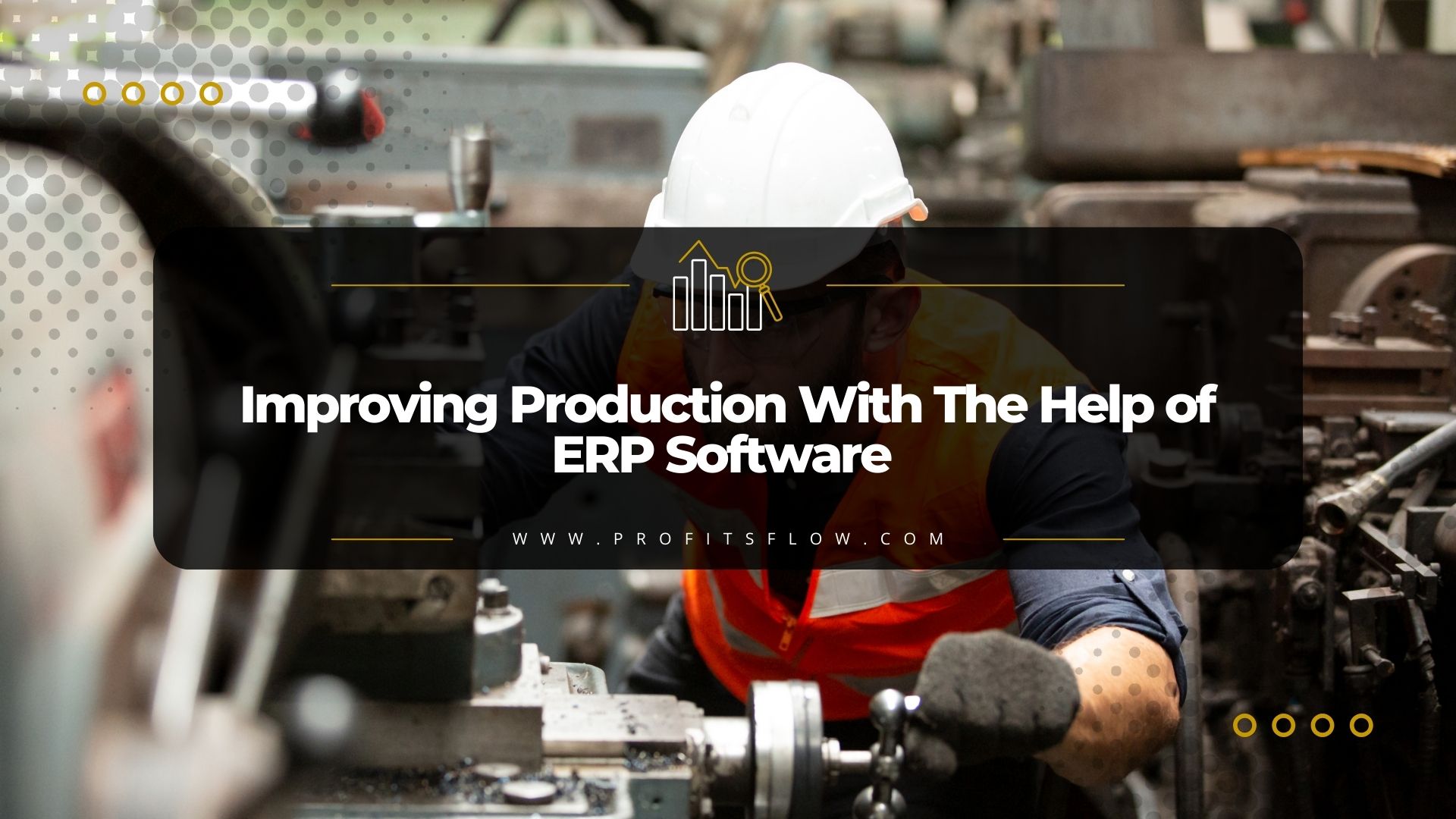For manufacturing organisations, improving production is one of the most crucial aspects to their business. Having optimal production processes can be crucial when trying to compete with companies in the same sector. One of the most powerful tools available to manufacturers and production companies is Enterprise Resource Planning (ERP) software. By integrating various business processes into a single unified system, ERP software offers a range of benefits that can significantly enhance production capabilities. In this blog post we will discuss some specific examples of how ERP can be a major factor in improving production processes.
Enhanced Inventory Management
Firstly, Effective inventory management is vital for maintaining production schedules and meeting customer demand. ERP software provides real-time visibility into the organisations inventory levels. This helps businesses manage stock more effectively. The ability to automate reordering and just-in-time inventory practices reduce excess stock and minimise the risk of shortages, leading to cost savings and improved efficiency.
Improved Production Planning and Scheduling
ERP systems offer advanced planning and scheduling tools that help manufacturers optimize their production processes. By analysing historical data and current trends, ERP software can forecast demand, plan production runs, and allocate resources more efficiently. This results in reduced downtime, better utilisation of resources, and the ability to meet deadlines more consistently.
Quality Control and Compliance
Maintaining high-quality standards and adhering to regulatory requirements are essential in production. ERP software can help monitor production quality by tracking each step of the manufacturing process. It ensures that all procedures are followed correctly and that any deviations are promptly addressed. Additionally, ERP systems can simplify compliance with industry standards and government regulations by maintaining accurate records and generating necessary reports.
Enhanced Data Analysis and Reporting
One of the key advantages of ERP software is its ability to collect and analyse data from various production stages. This data can provide valuable insights into performance metrics, identifying areas for improvement and enabling informed decision-making. Detailed reporting capabilities allow managers to monitor production efficiency, detect bottlenecks, and implement corrective actions swiftly.
Better Collaboration and Communication
ERP software fosters better collaboration and communication across all departments. With a centralised database, employees can access relevant information quickly and collaborate more effectively. This transparency ensures that everyone is on the same page, reducing misunderstandings and enhancing teamwork. Improved communication can also lead to faster problem-solving and a more agile production environment.
Cost Savings
Finally, a major benefit of implementing ERP is overall cost savings. ERP can help the organisation to improve efficiency, reduce waste, and optimise resource allocation. Better inventory management, reduced downtime, and enhanced productivity contribute to a leaner operation with lower operational costs. These savings can be reinvested into the business to drive further growth and innovation.
Implementing ERP software is a strategic investment that can be a major step in improving production capabilities. ERP systems empower businesses to operate more efficiently and competitively. As you look to improve your production processes, consider the benefits of ERP software and how it can help you achieve your operational goals.
We here at Profitsflow are the providers of the fully comprehensive ERP solution EFACS E/8. If you and your team need any assistance when it comes to choosing a solution you can feel free to contact us here and we would be happy to help you in your ERP journey.
